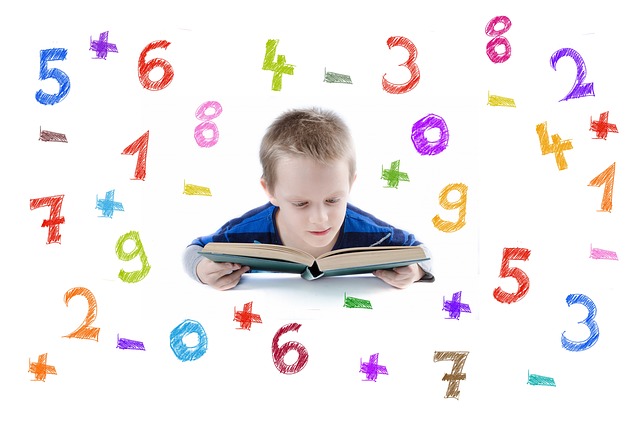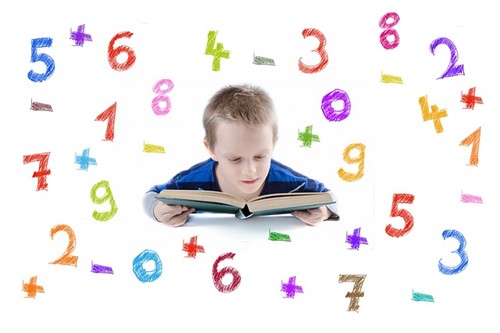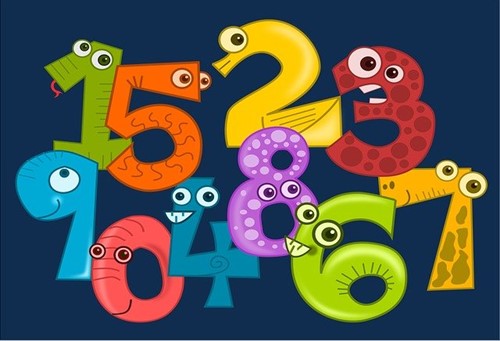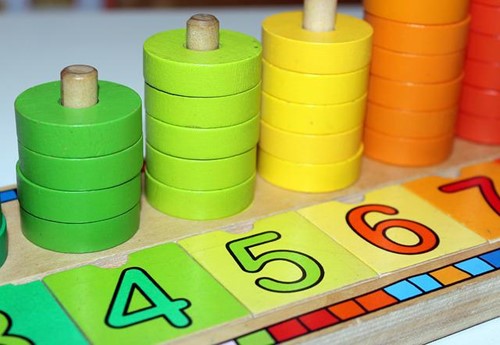When Should a Child Start Learning Math?
At what age should a child start learning math? If you’re a new parent, you’ve probably asked yourself this question a thousand times already. On the one hand, you don’t want to ruin your kid’s childhood by overloading them with math exercises too early. On the other hand, if you want your child to become a math genius, you’d need to “catch them young.”


So what do you do? If you’re concerned about the appropriate age to begin math for kids, this article will guide you through the developmental stages of math learning. Let’s get down to brass tacks, shall we?
When Do Children Start Learning Math?
Generally, learning math for kids is a slow yet steady process that occurs in several stages. However, it all starts from the cradle. Here’s a breakdown of how it works:
0-12 months
Who says babies can’t learn math? Although you can’t exactly whip out a chalkboard to teach algebra to a 2-month-old baby, children may begin to grasp basic mathematical concepts even as mewling infants. At that age, they can understand sequencing or size.
For instance, they may understand that Sally is small while Mama is big. They could also understand that when Mama lifts her shirt, what follows next is feeding.
As they begin to approach 12 months, they’d understand more advanced concepts like spatial separation and whatnot. Even though they’re still not yet ready to take on algebra (hold your horses!), they’re certainly ready to start learning simple mathematical concepts.
Toddlers (1-2)
The Terrible Twos is a phase almost every parent dreads. However, away from the tantrums and screaming that typically accompanies this age, it’s a great phase for introducing your child to math. Around this age, children can begin to recite basic numbers (e.g., 1 -3). They’d also be able to recognise and name basic shapes (although they may not be accurate all of the time).
In some cases, they may be able to answer the “how many?” question (for instance, asking them how many fingers you’re holding up).
It’s certainly a core developmental phase for children, and as a parent, it’s essential that you make the most of it.
Preschoolers (3-4)
This is like the “math coming of age” phase for many kids. Around this age, most parents typically begin to pay for online math classes for kids. But what exactly can a three or four-year-old child understand?
Well, for starters, they’ll begin to learn how to count from 1 to 20 and even understand the days of the week. It’ll also be easier for them to follow multi-step directions (e.g, when learning how to add or subtract numbers).

Why Should You Start Teaching Math to Your Kid at an Early Age?
So here’s the big question: why should your child start learning math young? Why can’t they just wing it and hope for the best? Well, the truth is that learning math young offers a lot of benefits, such as:
Equipping them with math skills
A large percentage of students think math is a difficult subject. While they’re not completely wrong, math learning can be a breeze if you have the right skills. And where exactly can you get these skills? It’s easy: from the cradle. Learning math at a young age helps children develop essential math skills that will certainly come in handy later in life (for instance, in high school or if they pursue a STEM course). In no time at all, you’ll have a mini Albert Einstein on your hands.
Teaching them critical thinking
Everyone needs critical thinking to survive or become successful in life? Need to make a billion-dollar decision? Critical thinking. Need to get out of quicksand? Critical thinking (and probably a good Samaritan) to the rescue.
Fortunately, learning math at a young age helps kids to learn how to think outside the box to solve problems. As they get older, they’ll learn to apply these critical thinking skills to real-life problems.
It fosters a good relationship with the subject.
If you walk into a room of students and ask: “who hates math?” you’d most likely see several hands shoot up. Wondering why? Well, it’s simple. Not everyone had a great math foundation. Some had it sprung on them at the age of six and never had the time to foster a good relationship with the subject.
Learning math at a very young age helps kids to build the right foundation and foster their relationship with math. This way, they’ll learn to love it as they grow.

How to Teach Your Kid Math
So, you’re ready to “catch them young” and teach your child math. Here are a few tips to help you:
Use everyday objects
If you're trying to teach math to your child, you'd have to start using the everyday objects they recognise. For instance, you could use buttons, stones, or fruits to teach them how to count. This way, they can connect counting with familiar objects instead of simply cramming numbers. Additionally, incorporating an interactive game presentation into your teaching approach can make learning math even more engaging and enjoyable for your child.
Bake, bake, bake
No child ever passes up on the opportunity to bake cookies and get the chance to play with dough. So, if you’re trying to teach math to your kid, you can start by baking cookies. Bake cookies in several shapes and ask them to identify each shape. This way, they’ll be able to recognise and identify the various shapes.
Patience is the key
Sure, it’s exciting when your child hits a new milestone or is able to start counting way ahead of their peers. However, you should know that kids’ math learning experiences can vary. In some cases, it may take a while for your child to hit certain milestones. If this happens, simply be patient and support them throughout their math learning journey.
Final Thoughts
Contrary to what you may think, children are actually capable of learning math at a very young age. Typically, math learning begins in infancy and begins to solidify at the age of 3-4. So, if you were looking for a sign to start teaching math to your kid, this is it.
Good luck!